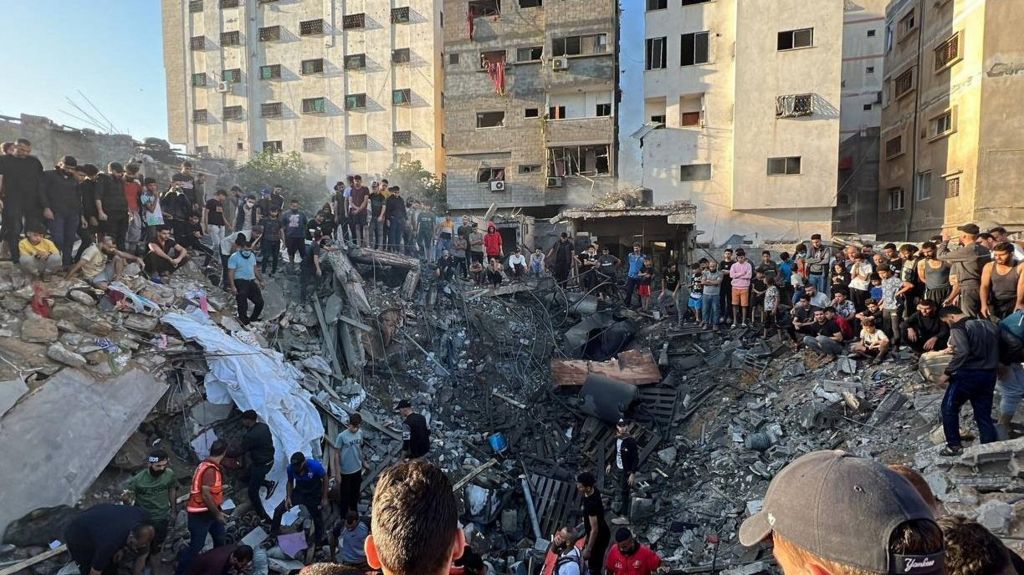-

-
-
Loading

Loading

Hamas launched an attack on Israel three weeks ago, resulting in approximately 1,400 deaths. In response, Israel has conducted intense bombings in the Gaza Strip, resulting in over 5,000 deaths according to the Hamas-run health ministry. Western leaders have visited Israel to show support and urge them to adhere to international law and protect civilians in Gaza. There is a possibility of a ground invasion of Gaza, although there is no clear timeframe for this. The situation in the region is complex and fast-moving. Concerns are focused on Israel's northern border, where tensions between Israeli forces and Hezbollah have escalated. Israel has taken precautions and evacuated vulnerable communities in anticipation of potential threats. Hezbollah, backed by Iran, possesses sophisticated missiles and is seen as a greater threat to Israel than Hamas. The US has sent additional weaponry and deployed a carrier task force to signal strength to Hezbollah and Iran. The blockade imposed by Israel on Gaza has made life difficult for ordinary citizens, with limited access to water, fuel, and electricity. Israel justifies the blockade as a way to prevent the supply of weapons. Hamas has taken hundreds of hostages in Gaza, and the likelihood of a successful rescue mission by Israel is low due to the challenging conditions and risks involved. Historically, Hamas received funding from Palestinian expats, private donors, and some Islamic charities. However, after being designated a terrorist entity, funding sources became more restricted. Currently, Hamas receives support from Iran and assistance from Qatar to pay wages. The US Treasury also states that Hamas has a secret international investment portfolio. The death toll in the conflict is high, with over 1,400 Israelis and more than 5,000 Palestinians killed. While Western governments typically allow Israel time to punish Hamas before calling for a ceasefire, this war is different as Israel aims to eradicate Hamas entirely. The West's support for Israel has been evident, although there are growing concerns about the high civilian casualties resulting from Israel's airstrikes. The US has warned Israel not to act out of blind rage. Fatah, the rival faction to Hamas, has not indicated a willingness to take over Gaza. The Palestinian Authority has governance over parts of the West Bank and has been internationally recognized as representing the Palestinian people. There is no unified Western position on this conflict, and there are calls for Israel to adhere to international humanitarian law. UN agencies have accused Israel of breaching these laws by bombarding crowded areas and displacing over a million people from their homes.